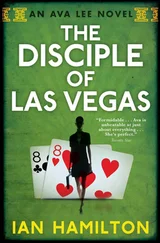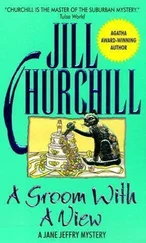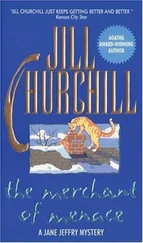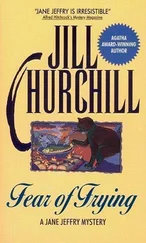Winston Churchill - Ian Hamilton's March
Здесь есть возможность читать онлайн «Winston Churchill - Ian Hamilton's March» весь текст электронной книги совершенно бесплатно (целиком полную версию без сокращений). В некоторых случаях можно слушать аудио, скачать через торрент в формате fb2 и присутствует краткое содержание. Год выпуска: 2018, Издательство: epubBooks Classics, Жанр: История, Прочая документальная литература, на английском языке. Описание произведения, (предисловие) а так же отзывы посетителей доступны на портале библиотеки ЛибКат.
- Название:Ian Hamilton's March
- Автор:
- Издательство:epubBooks Classics
- Жанр:
- Год:2018
- ISBN:нет данных
- Рейтинг книги:4 / 5. Голосов: 1
-
Избранное:Добавить в избранное
- Отзывы:
-
Ваша оценка:
- 80
- 1
- 2
- 3
- 4
- 5
Ian Hamilton's March: краткое содержание, описание и аннотация
Предлагаем к чтению аннотацию, описание, краткое содержание или предисловие (зависит от того, что написал сам автор книги «Ian Hamilton's March»). Если вы не нашли необходимую информацию о книге — напишите в комментариях, мы постараемся отыскать её.
London to Ladysmith
Ian Hamilton's March — читать онлайн бесплатно полную книгу (весь текст) целиком
Ниже представлен текст книги, разбитый по страницам. Система сохранения места последней прочитанной страницы, позволяет с удобством читать онлайн бесплатно книгу «Ian Hamilton's March», без необходимости каждый раз заново искать на чём Вы остановились. Поставьте закладку, и сможете в любой момент перейти на страницу, на которой закончили чтение.
Интервал:
Закладка:
At last Dickson's advance reached a point between Thabanchu Mountain and the peaked hill, so that no more Boers could escape by that road; and we saw the others, three or four hundred in number, riding about, up and down, or round and round in the bay, like newly–caught rats in a cage.
At this everyone became very excited. 'Gordon must have headed them back,' it was said. 'Only a few more men and we might make a bag.' Where could men be found? Somebody suggested asking Hamilton. The helio twinkled: 'Come and help us make a bag,' it said, in somewhat more formal language. And Hamilton came forthwith, leaving positions which were of much value; collecting every man he could lay his hands on—weary mounted Infantry, a tired–out battery, and all of Smith–Dorrien's Brigade that could march fast at the end of a long day—he hurried to seize and line the northern spurs of Thabanchu Mountain, prepared to risk much to strike a heavy blow.
The movement of Infantry and guns to support him encouraged Dickson to press still further forward, and the whole brigade advanced nearly another mile. At length we overtopped a smooth ridge, and found ourselves looking right into the bay or horseshoe of mountains. Now at last we must see Gordon. 'There he is,' cried several voices, and looking in the direction shown I saw a majestic body of horse streaming out of the centre of the bay towards the north–west. But was it Gordon? At least 4,000 mounted men were riding across our front, hardly two miles away. Surely no brigade was so numerous. Yet such was the precision of the array that I could not believe them Boers.
Boers their numbers, however, proved them to be; and not their numbers alone, for before we had watched this striking spectacle long, two large puffs of smoke leapt from the tail of the hostile column, and two well–aimed shells burst near our Horse Battery. At the same time patrols from the left rear hurried in with the news that the Boers who had already escaped from our imagined 'trap' were advancing in force, with two more guns, to cut us from the rest of the army.
As for Gordon, there was no longer any doubt about his fortunes. Far away to the eastward the horseshoe wall of mountains dipped to a pass, and on the sides of this gateway little puffs of smoke, dirty brown against the darkening sky, showed that Gordon was still knocking with his Artillery at the door, and had never been able to debouch in the plains behind it. Moreover, the dangerous hour of twilight was not long distant. Dickson determined to retreat while time remained, and did so without any unnecessary delay. Whereat the Boers came down on our rear and flank, opening furious fire at long range, and galloping eagerly forward, so that the brigade and its guns, so far from entrapping the enemy, were all but entrapped themselves; indeed, the brigadier's mess cart, the regimental water carts, and several other little things, which, being able only to trot, could not 'conform to the general movement,' were snapped up by the hungry enemy, who now pressed on exulting.
Meanwhile Hamilton had taken some risks in order to promote the expected entrapping. He had now to think of himself. First, the Boer advance must be stopped, and, secondly, the force which had, in the hopes of grasping the Boers, let go its hold on Kitchener's Horse Hill, must be withdrawn within the Thabanchu picket line. The General, however, was equal to both requirements. Judiciously arranging some force of Infantry and guns, he peppered the advancing Boers heavily, so that at 800 yards they wheeled about and scurried to the shelter of adjacent kopjes. This advantage restored the situation. Hamilton remained on the ground till dark, and then, with the whole of Ridley's and Smith–Dorrien's commands, returned safely into Thabanchu.
During the day rifle and artillery fire had been constant; but as the fighting had been conducted at extreme ranges, which neither side showed much anxiety to diminish, the slaughter was small. Indeed, I do not think that a dozen men were stricken in either army. So far as the British were concerned, the result of the day's operations was a qualified success.
The Boers were evidently prepared to retreat from Thabanchu, but they proposed to do so in their own time and at their most excellent discretion, and it was quite evident that we had not succeeded in any way in hindering or preventing them. It was also clear that, far from being 'in small parties,' their strength was nearly 6,000, so that on the whole we might congratulate ourselves on having moved in ignorance and taken no great hurt, The only point about the action difficult to understand was the behaviour of the Boers who had ridden about like caged rats. Why should they do so when they knew that their line of retreat to the north–east was perfectly secure? I can only conclude that this particular commando had arranged to retire northwards towards the peaked hill, and were annoyed at being prevented from joining their comrades at the point where their waggons, and, consequently, their dinners, were awaiting them.
On the evening of this instructive, but unsatisfactory, day, Hamilton received orders from Lord Roberts to march north on Winburg in conformity with the general advance of the army. For this purpose his force was to be largely increased, and the operations which followed require the space of another letter. French remained for some days at Thabanchu, but attempted no further serious operations against the enemy.
Only one other incident of interest occurred in the neighbourhood of Thabanchu. After his relief of Wepener, Brabazon was ordered thither via Dewetsdorp. On the 28th, dusty and tired at the end of a long march, he arrived with his Yeomanry at the foot of a pass among the hills. A Kaffir lounged into the bivouac and asked the General whether he would like to see some pretty shelling, for that there was a fine show at the top of the valley. Brabazon, much interested, mounted his horse forthwith, and, guided by the Kaffir through devious paths, reached a point which afforded an extensive view.
There, in the twilight, lay a British convoy, stoutly defended by a company of the kiddies and a few Yeomanry, and shelled—as the Kaffir had said—with great precision by two Boer guns. The General thereupon gave the Kaffir a 'fiver' to carry a letter through the Boer lines to the commander of the convoy, telling that officer to hold out manfully, and promising that with the dawn Brabazon and the Imperial Yeomanry would come to his aid.
The Kaffir succeeded in his mission. The convoy was encouraged, and, good as his word, with the daylight came the General, at whose approach the Boers fled incontinently, so that Brabazon, the Yeomanry, and the convoy came in safety and triumph into Thabanchu together.
Chapter VIII
Ian Hamilton
London: August 10, 1900.
Ian Standish Monteith Hamilton was born at Corfu in 1853. His father, the late Colonel Christian Monteith Hamilton—then a captain, but who eventually commanded the 92nd Highlanders—was the eldest son of John George Hamilton and of Christina Cameron Monteith, daughter of Henry Monteith of Carstairs, sometime Member of Parliament for Lanarkshire. His mother, the late Maria Corunia Vereker, was daughter of John, third Viscount Gort, by Maria O'Grady, daughter of Viscount Guillamore. [1] Vide Peerage, Gort and Guillamore.
The Hamilton family is one of the elder branches of the Scottish Hamiltons, and represents the male line of the Hamiltons of Westport. One of his ancestors on his father's side, a Colonel Hamilton, was for several years an aide–de–camp of the first Duke of Marlborough, and it was therefore something in the nature of a coincidence when Ian Hamilton found the present Duke of Marlborough serving in a similar capacity on his staff. It would not be quite correct to call him a pure Celt, but some notice should be taken by those interested in these questions that his blood is mostly Celtic: both of his grandmothers, Monteith and O'Grady, being of Celtic stock, Scottish and Irish respectively.
Интервал:
Закладка:
Похожие книги на «Ian Hamilton's March»
Представляем Вашему вниманию похожие книги на «Ian Hamilton's March» списком для выбора. Мы отобрали схожую по названию и смыслу литературу в надежде предоставить читателям больше вариантов отыскать новые, интересные, ещё непрочитанные произведения.
Обсуждение, отзывы о книге «Ian Hamilton's March» и просто собственные мнения читателей. Оставьте ваши комментарии, напишите, что Вы думаете о произведении, его смысле или главных героях. Укажите что конкретно понравилось, а что нет, и почему Вы так считаете.











